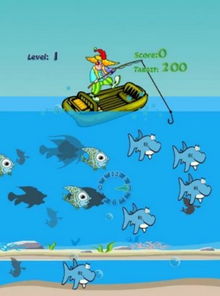
Content:
Winter fishing can be a serene and rewarding experience, offering anglers the chance to enjoy the beauty of nature while targeting fish that are less active during the colder months. However, with the drop in water temperatures, choosing the right钓位 (diao wei) becomes crucial for success. Here are some tips and techniques to help you select the perfect钓位 during the winter season.
Identify the Fish's Behavior: Understanding the behavior of fish during winter is the first step in selecting a good钓位. In cold water, fish tend to be more sluggish and congregate in areas where they can conserve energy. Look for spots where fish are likely to gather, such as:
- Deep Water: Fish often seek out deeper waters where the water temperature remains relatively stable and warmer.
- Structure: Areas with submerged rocks, logs, or other structures provide cover and can attract fish looking to conserve energy.
- Current Breaks: Fish may linger in areas where currents slow down, such as behind rocks or in eddies.
Consider Water Temperature: Fish are cold-blooded, which means their metabolism slows down as water temperatures drop. To find the warmest water possible, consider the following:
- Sunlight Exposure: Areas that receive more sunlight can have slightly warmer water temperatures. Look for shallow bays or coves that are exposed to the sun.
- Warm Water Discharges: Industrial areas or power plants may discharge warm water into nearby bodies of water, creating a hotspot for fish.
- Thermal Upwelling: In some cases, warmer water from deeper layers can rise to the surface, creating a thermocline. Fish may gather in these areas.
Analyze the Bottom Composition: The type of bottom can significantly impact fish behavior. Here are some considerations:
- Gravel and Sand: These substrates are good for finding fish, as they provide a stable environment and can hold baitfish.
- Rocky Areas: Rocks can provide excellent cover for fish, especially in areas with a mix of rock and sand.
- Weed Beds: While fish may avoid thick weed beds in summer, they can be a haven in winter, offering shelter and food.
Use a Fish Finder: A fish finder can be an invaluable tool during winter fishing. It allows you to:
- Identify Fish Schools: Look for concentrations of fish on the sonar screen, which can indicate a good钓位.
- Determine Water Depth: Knowing the depth of the water is crucial for choosing the right lure and presentation.
- Locate Structure: Use the fish finder to identify submerged structures that could be holding fish.
Check the Weather and Wind Conditions: Winter weather can be unpredictable, so it's important to check the forecast before heading out. Consider the following:
- Wind: Wind can affect the water temperature and fish behavior. Choose a day with minimal wind to avoid disturbances.
- Snow and Ice: If there's snow or ice on the water, it may indicate cold temperatures that can further slow down fish activity.
Scout the Area: Before setting up your equipment, take some time to scout the area. Look for signs of fish activity, such as:
- Baitfish Movement: If you see baitfish moving in a particular area, it's likely that larger fish are nearby.
- Bird Activity: Birds often feed on fish, so if you see a lot of birds diving into the water, it could be a sign of fish activity.
- Fishermen's Success: If you see other anglers catching fish, it's worth investigating their钓位.
Adjust Your Approach: Once you've chosen your钓位, be prepared to adjust your approach based on the fish's response. Consider the following:
- Lure Selection: Use lures that mimic the natural prey of the fish you're targeting. In winter, fish may be more selective, so choose smaller and slower-moving lures.
- Rigging: In colder water, fish may be more susceptible to hooking, so use a lighter rig and be gentle when playing fish.
- Patience: Winter fishing often requires more patience. Wait for the fish to come to you rather than trying to force them.
By following these tips and techniques, you'll be well on your way to selecting the perfect钓位 for winter fishing. Remember that each body of water is unique, so adapt these strategies to fit the specific conditions you encounter. Happy fishing!












